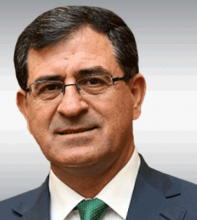You are here
Economic stimulus plan and WEF
May 15,2017 - Last updated at May 15,2017
The economic stimulus plan presented to His Majesty King Abdullah at the meeting of the Council of Economic Policies on May 3, 2017, and approved by the Council of Ministers is not just a stimulus, but also a comprehensive development strategy.
The stimulus plan affects most of the elements of supply and demand in the economy and intersects with the rest of the plans that exist in the country’s various ministries and government institutions.
The plan is ambitious. It includes priority areas of reform, and enhances the enabling environment for economic activities and the implementation of government projects, with an effective role for the private sector.
The cost of the entire plan is estimated at JD16.4 billion.
The amount of money included in the plan is equivalent to the size of the Kingdom’s general budget for two consecutive years.
The types of projects differ fundamentally; they reflect development priorities and address structural problems of the national economy.
If implemented, they will lead to a significant jump in economic growth rates during 2018-2022.
Public and private projects in the programme require funding of various forms and sources, from local and international private financial and government institutions.
Conventional loans, leasing, equity capital, international grants and other forms of financing are needed.
Diversifying financing tools is necessary to ensure the participation of local banks in financing the programme.
The public-private partnership should be activated.
Many Arab and foreign countries showed interest and are willing to increase and diversify their investments in the Kingdom; China, Turkey, EU, Saudi Arabia, the UAE, Kuwait and Iraq are active examples.
The government should provide different types of incentives to these countries, irrespective of whether their investment comes from government or private companies.
Moreover, it is important to announce this stimulus plan at the World Economic Forum, which Jordan hosts this weekend at the Dead Sea.
It is a global opportunity for Jordan to brief participants from different countries on its different economic plans and, more specifically, on the Economic Growth Stimulus Plan of 2018-2022.
There is an urgent need to inform this international forum of the importance of increasing support for Jordan by investing in the country, especially after we have shown that the Jordanian model is different.
There are real investment opportunities in different sectors, such as energy, renewable energy and oil shale, infrastructure, water and tourism.
We also should emphasise that the Jordanian economy depends on competitiveness and on diversifying our exports, especially after the simplification of rules of origin by the EU.
This is a real opportunity to increase the resilience of our economy and its ability to withstand and reduce the impact of external shocks on its performance.
WEF will witness the participation of a large number of heads of states and governments, as well as prominent international figures in the areas of business, media, civil society and academic and research institutions.
The writer is director general of the Association of Banks in Jordan. He contributed this article to The Jordan Times.












